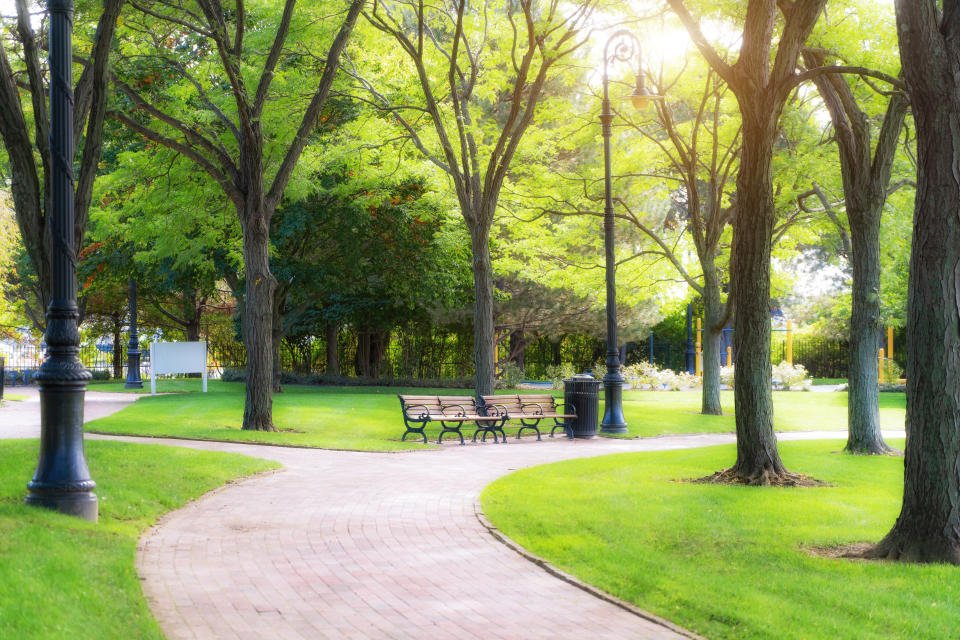Living near green spaces may postpone the menopause

Living near green spaces may delay the onset of the menopause, research suggests.
Scientists from the Barcelona Institute for Global Health and University of Bergen in Norway looked at more than 1,900 women across nine countries.
Over 20 years, the women completed questionnaires on their health, with the green spaces in their local area also being calculated.
Those who lived away from parks, lawns or public gardens became menopausal on average 1.4 years earlier than the women residing in the greenest places.
Read more: Early menopause 'triples a woman's risk of multiple health issues'
The menopause occurs when a woman’s oestrogen levels decline, causing her periods to stop and leaving her unable to become pregnant naturally.
A normal part of ageing, this usually occurs between 45 and 55 years of age, with 51 being the average in the UK and US.
Green spaces have been linked to a host of health benefits, including a lower risk of obesity and improved attention spans in children.
To uncover their effect on the menopause, the scientists looked at women from the UK, France, Spain, Germany, Belgium, Sweden, Estonia, Iceland and Norway.
The women’s menopausal state was determined via questionnaires and blood samples.
Read more: Vaginal dryness causes menopausal women to ‘give up on a sex life’
After looking at the 300m (984ft) “circular buffer” around the women’s addresses, the scientists found those living near the most green spaces tended to start the menopause at 51.7 years old.
This is compared to 50.3 years among the women residing near the least grassy areas.
The results, published in the journal Environment International, remained true after the scientists adjusted for other factors linked to menopause onset.
These include BMI, age of first period and use of hormonal contraception.
Stress, potentially triggered by living in an urban environment, may also be to blame.

“We know stress increases the level of cortisol in the blood and numerous studies have shown exposure to green spaces reduces it,” said lead author Kai Triebner.
“Low cortisol levels have been associated with increased levels of estradiol, an important female sex hormone.
“Perhaps women who live near green space have lower cortisol levels, which would allow them to maintain higher levels of estradiol, which may in turn delay the onset of menopause.
Read more: ‘Menopausal delay’ surgery that costs at least £6,000 has ‘no evidence’
He added: “Exposure to green space is also associated with a lower risk of certain mental health conditions, such as depression, which is also associated with younger age at menopause.”
The menopause can be unpleasant, with many women experiencing symptoms like hot flushes, night sweats, vaginal dryness and insomnia.
While all go through “the change” eventually, a later menopause has been linked to a longer life and reduced risk of dying from heart disease.
The scientists hope if the results of their study are confirmed in future trials, policymakers may “implement interventions aimed at decelerating reproductive ageing in our rapidly urbanising world”.

 Yahoo Finance
Yahoo Finance 
